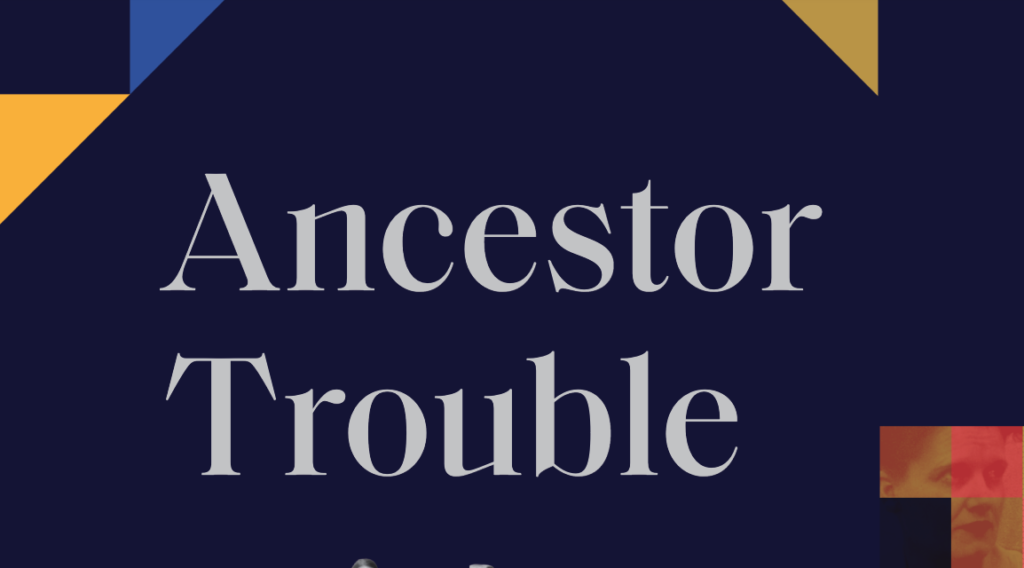
I’m often asked whether my parents are still alive and if so what they think of my book. They are — mom, father, and stepdad — and I can answer honestly that I don’t know what they think of Ancestor Trouble or if they’ve read it. While I was working on the book, I told my mom that I didn’t want to disclose anything about her own personal history that she might have shared with the intention that I’d keep it private. I didn’t want her to feel her most tender secrets were being exposed. I was thinking especially of her suicide attempt. “I don’t care what you write about me,” she said, “as long as you don’t use my name.” That answer was a gift, and I did not take that trust lightly. My stepfather also knew I was writing the book and the histories that might be included there.
As for my father, I go on to explain, we’re still as estranged as I described in the book. So I really don’t know. Now I might add that he did respond to a fact-checker at the New York Times Magazine recently with a broad denial of the facts in my y’all piece, including my assertion that he was fixated on the Old South. “Are you even sure your email is direct to the appropriate person?” he asked the researcher, I suppose intending to raise the possibility that he is not actually my father. (He is, though.) We noted the general denial in the piece and I decided to post some a supplement here of a couple of letters that he wrote in 1980 using the word “scalawag” and arguing that Jimmy Carter wasn’t really a Southerner. Because a denial of the truth is not the equivalent of the truth.
Often I think readers ask this question about my parents because they too have difficult family experiences that they would like to write about, but are afraid to share for fear of causing pain to family members who are still alive. I have a lot of compassion for those fears, for the stories we hold inside though a kind of loyalty, believing we can’t share them. If that’s you, I wish you a lot of gentleness toward your past self.
But for the moment I want to focus on how, for some readers, stories about family abuse and trauma tend to transform the writer into the abuser. I expected this, from decades of blogging, publishing essays, and being on the internet, and I was right to expect it. The writer, this sort of reader tends to presume, is seeking revenge and thus unreliable, their words tainted with anger, sanctimony, or both. This reader begins to feel protective toward the family members depicted, to search for ways that the writer might be lying or exaggerating or just generally kind of an asshole and ways that the difficult family was actually not really so bad at all. This inversion is often complicated by the fact that a writer, too, may feel some residual protectiveness toward their abusive family member. And that’s why I’m writing this, for you if you’re that writer coming up against this response from someone.
One reason I’m glad that I was fifty years old when Ancestor Trouble was published is that I had worked through the desire for score-settling that often animated my writing as a younger person, when I was filled with rage and indignation and a burning desire to expose hypocrisy. Sure, I still on occasion feel anger toward members of my family, as any human being does, but I did not write my book from that place. I wrote it from a place of acceptance, after many years of therapy, in the most openhearted, honest way I could, with a hope of fostering healing that might reach beyond myself and my own family. And I was careful not to (at least by my own metrics) implicate family members gratuitously or share unnecessarily. The value of what I wrote is for each reader to determine, but my conscience is clear.
I don’t believe that a writer has to move beyond the desire for settling scores before writing about their own family traumas. I’m glad my own motivations transformed, in part because that kind of writing was ultimately unhealthy for me personally. But it was also necessary for me to write those things in my youth as I found my way here. Ancestor Trouble would not exist without that stage of the process.
Another reason I’m glad that my book was not motivated by any desire for revenge is that I can see so clearly how incorrect it is to view the writer as the abuser for sharing their tough experience of family. And that is the part I wanted to say here. If you are a writer struggling with the ethics of sharing your own history, remember that dragging these experiences out of hiding does not make you the harmful one. Maybe you also did harmful things, and maybe you will write about those things, too. But writing about abuse is not abuse and does not transform you into the abuser. And you are not alone.
* I use this title with acknowledgement of and apologies to the writer Sarah Schulman, author of Conflict is Not Abuse.